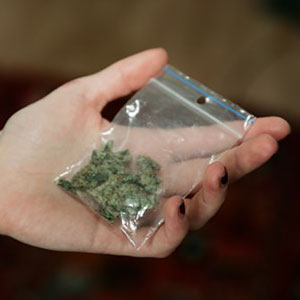By Bruce Kennedy

These are heady times for supporters of legalized marijuana as well as those looking to cash in on pot’s growing national acceptance. This month, voters in Washington state and Colorado agreed to legalize the recreational use of marijuana for adults. And medical marijuana is currently legal in 18 states and Washington D.C.
Of course, marijuana remains illegal by federal law. But people involved in what some are calling the “green rush” are still looking at business and investment opportunities in cannabis and its production.
And as with nearly all markets, some people are willing to take the risk.
“Think of it as another dot.com explosion,” said Bruce Perlowin, CEO of Hemp Inc. (HEMP -4.48%), in a recentpress release.
And according to an investor fact sheet for Medical Marijuana Inc. (MJNA +25.00%), the current U.S. medical marijuana industry is estimated at $17 billion, with expectations it could grow up to about $29 billion by 2016.
“It was almost unthinkable 10 years ago that you would have legitimate, fully reporting to the SEC companies that were in the nature of pure plays, with positions in the medical marijuana industry,” says Sterling Scott, CEO of Los Angeles-based GrowLife Inc. (PHOT 0.00%), a consortium of companies that sells products for indoor growing.
Scott, a former federal regulatory attorney, estimates there are about 10 cannabis-related companies currently being traded as over-the-counter stocks. Most OTCs are relatively small and often new companies that don’t yet meet the requirements to be listed or traded on exchanges like Nasdaq or the New York Stock Exchange.
These are heady times for supporters of legalized marijuana as well as those looking to cash in on pot’s growing national acceptance. This month, voters in Washington state and Colorado agreed to legalize the recreational use of marijuana for adults. And medical marijuana is currently legal in 18 states and Washington D.C.
Of course, marijuana remains illegal by federal law. But people involved in what some are calling the “green rush” are still looking at business and investment opportunities in cannabis and its production.
And as with nearly all markets, some people are willing to take the risk.
“Think of it as another dot.com explosion,” said Bruce Perlowin, CEO of Hemp Inc. (HEMP -4.48%), in a recentpress release.
And according to an investor fact sheet for Medical Marijuana Inc. (MJNA +25.00%), the current U.S. medical marijuana industry is estimated at $17 billion, with expectations it could grow up to about $29 billion by 2016.
“It was almost unthinkable 10 years ago that you would have legitimate, fully reporting to the SEC companies that were in the nature of pure plays, with positions in the medical marijuana industry,” says Sterling Scott, CEO of Los Angeles-based GrowLife Inc. (PHOT 0.00%), a consortium of companies that sells products for indoor growing.
Scott, a former federal regulatory attorney, estimates there are about 10 cannabis-related companies currently being traded as over-the-counter stocks. Most OTCs are relatively small and often new companies that don’t yet meet the requirements to be listed or traded on exchanges like Nasdaq or the New York Stock Exchange.
He breaks down these marijuana sector firms into four groups:
- Established companies, like GrowLife, that sell equipment and expendables for the cannabis industry.
- Companies like Medical Marijuana, whose mission, according to its website, is to become the industry’s “premier cannabis and hemp industry innovators.”
- Groups like Hemp Inc. that are looking to develop a legal market for the industrial and commercial use of hemp (which contains only trace amounts of marijuana’s active ingredient) in products such as paper, oils and cloth.
- Companies focused on the clinical, medical use of cannabis in areas such as cancer, inflammation and pain treatment.
Full Article:
http://money.msn.com/investment-advice/article.aspx?post=55419f1f-b43b-4c51-847f-0242c46b2a7d



